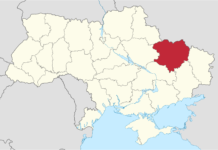In a sweeping operation that has caught the attention of international law enforcement and security agencies, Takeshi Ebisawa, a reputed leader within the Yakuza, Japan’s formidable organized crime syndicate, has been arrested. The charges against him and his associates are grave, encompassing the attempted international trafficking of not just narcotics and conventional weapons, but materials of a much more alarming nature: uranium and weapons-grade plutonium.
Ebisawa, along with his collaborators, was involved in a complex plot to transport these dangerous materials, which they believed could be utilized by nations such as Iran to further their nuclear weapons ambitions. This development adds a deeply concerning dimension to the already serious accusations of large-scale drug and weapons trafficking.
The operation leading to Ebisawa’s arrest was marked by its sophistication and international scope. Undercover agents from the U.S. Drug Enforcement Administration (DEA) engaged in negotiations that spanned across continents, from Asia to the streets of New York, where Ebisawa and his network intended to distribute narcotics. Their criminal endeavors also aimed to supply insurgent groups with military-grade weaponry, including surface-to-air missiles, underpinning the global threat posed by their activities.
The seriousness of the situation was compounded by the revelation that the network was negotiating the sale of materials capable of being used in the manufacture of nuclear weapons. The implications of such a transaction, had it come to fruition, are profound, highlighting the potential for criminal networks to contribute to global insecurity and the proliferation of weapons of mass destruction.
Ebisawa’s arrest, following nearly three years of meticulous investigation and surveillance, underscores the relentless pursuit of justice by the DEA and its partners. The operation revealed the lengths to which transnational criminal organizations will go to profit from and perpetuate global instability. The fact that these activities were being conducted by a group with ties to the Yakuza, a syndicate known for its adherence to a strict code of conduct and involvement in various illegal enterprises, further emphasizes the complex challenge that organized crime poses to society.
The charges laid out against Ebisawa and his associates reflect the gravity of their alleged crimes. They face multiple counts, including the conspiracy to import narcotics, possession of firearms, money laundering, and the attempted acquisition of anti-aircraft missiles. The addition of charges related to the trafficking of nuclear material only heightens the stakes, as the world grapples with the specter of nuclear proliferation and its implications for international security.
This case is a stark reminder of the multifaceted nature of organized crime in the 21st century, where criminal networks exploit global trade and technology to further their illicit aims. It also demonstrates the critical importance of international cooperation and vigilance in the fight against these syndicates, whose operations know no borders and whose activities pose a direct threat to global peace and security.










